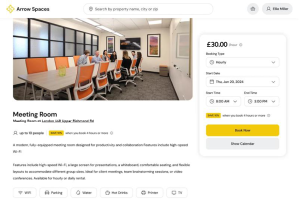Resilience and Reputation: Infrastructure Reliability and its Impact on Your Brand
Coworking and flexible workspaces are similar to any other operation in the sense that a brand creates intrinsic value. In developing a brand, workspace operators are investing in the future of the business and member satisfaction.
Vulnerability of workspace brands
One of the easiest ways to negatively affect the reputation of a flexible workspace is with inferior or sub satisfactory networking and internet connection and reliability.
As hard as it is to build up value and brand reputation, it can be easily damaged. Social media spreads like wildfire, more commonly negative than positive. “Don’t expect your members to be rational about inconveniences they think are forced on them,” said Tony Freeth, director of coworking Europe for Yardi.
Freeth explained that reputation and stability are two of the biggest keys to developing a positive brand value. Vulnerability, on the other hand, is the biggest detriment. If the first impression as a visitor inside a coworking space is poor or intermittent internet connection, that’s as damaging as anything to their likelihood of returning.
Customers carry strong memories of poor experiences, which is why first impressions are so vital. “As a coworking operator, you cannot let infrastructure be the problem,” Freeth added, “because it is just too tough to overcome the loss of reputation”
How users perceive unreliability
“Unreliability leads to a perception of institutional incompetence,” he explained. In a place where people come to work, make connections, and network with like-minded professionals, connectivity is the most essential tool. If you are going to ensure one thing is top-flight in your space, it would be high-level user experience over anything aesthetic. This applies to someone opening a first location or expanding a brand into new markets. While the experienced operator with many locations may receive the benefit of the doubt, and brand recognition is strong and positive, it is still hard to overcome a poor first impression when it comes to connectivity.
Resilience results from planning
“You can control these factors,” Freeth added. “All hardware fails, but have I planned for when it does fail? Will my service continue because it is resilient?” To use an example from a 2020 Yardi article, a resilient circuit is very valuable in the coworking industry. If one connection were to fail, the second connection is basically on standby waiting to take over automatically to restore connection.
Above all, resilience comes from eliminating single points of failure.
In the same way one would research buying a new car or a new home, a major consideration when researching software to power coworking operations is whether the platform has a resilience mindset. “Do they have a plan for when things fail and does everyone know what happens at that point?” Freeth said. “Yardi works on the idea that the customer should have three years of uninterrupted service and we design around that principle.”
Avoidable anecdotes
Freeth once went to visit a space outside of Denver, Colorado and was struck by a comment from the operator who told him that as he’s pulling into the building he looks at the Starbucks across the street, “because if its full, I know that my internet is down.” While funny, it is an awful feeling knowing that is a possibility any given day.
Another operator was interested in a new infrastructure solution because they were repeatedly having to discount meeting room charges due to the amount of time it took to connect to the Wi-Fi. Situations like these not only damage brand reputation, but hurt member retention as well.
“Above all, investing in reputation means investing for the long term,” Freeth said. Control what you can control and have backup plans for when systems don’t work as intended.





